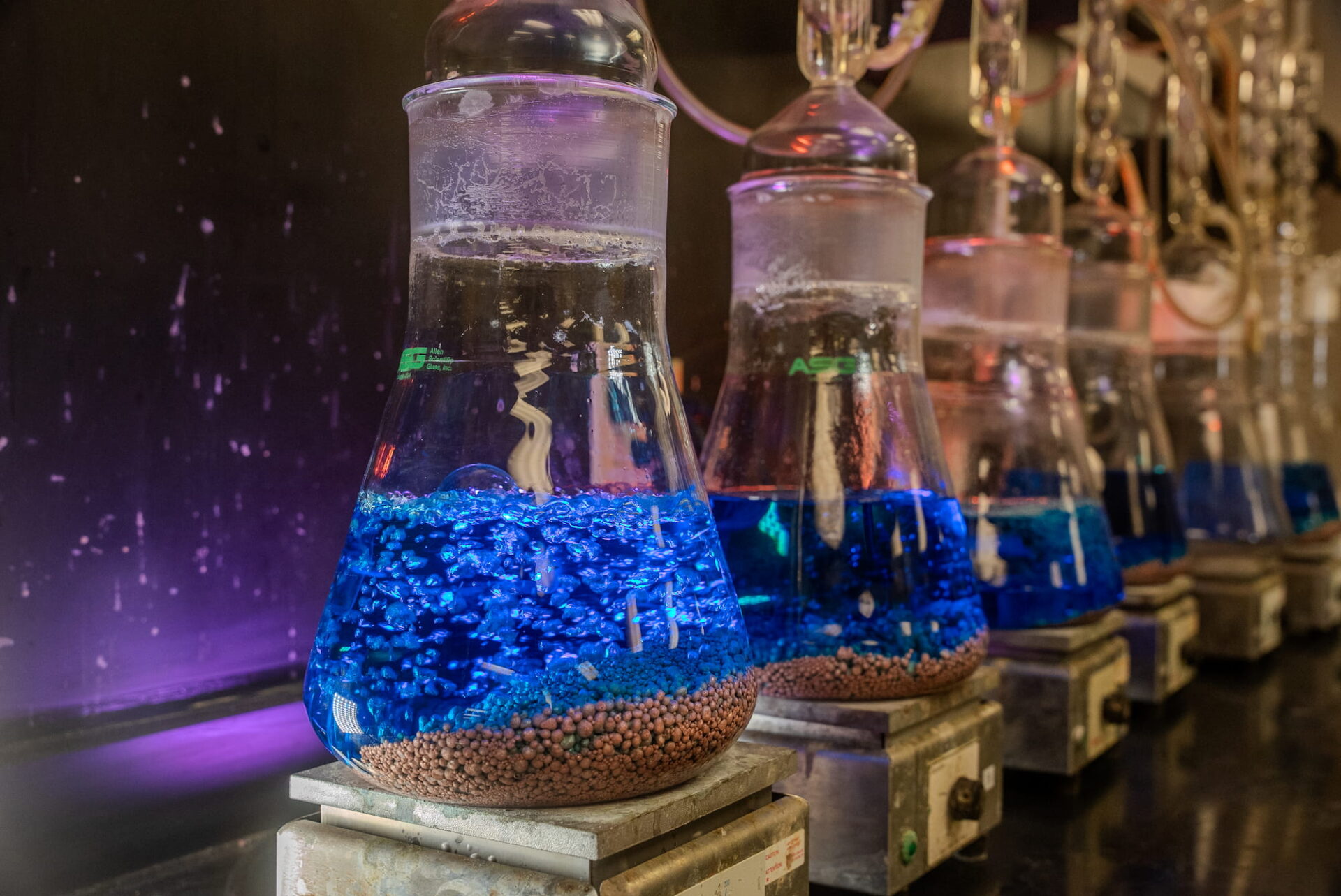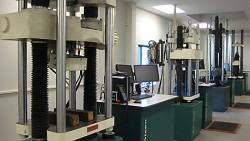 Materials Testing is performed for a variety of reasons and can provide a wealth of information about the tested materials, prototypes or product samples. The data collected during testing and the final test results can be very useful to engineers, designers, production managers and others.
Materials Testing is performed for a variety of reasons and can provide a wealth of information about the tested materials, prototypes or product samples. The data collected during testing and the final test results can be very useful to engineers, designers, production managers and others.
Here are some of the reasons material testing is important:
- Meeting requirements of regulatory agencies
- Selecting appropriate materials and treatments for an application
- Evaluating product design or improvement specifications
- Verifying a production process
Regulatory Compliance
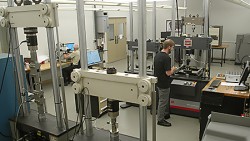 Many products are used in critical applications where a failure could result in extensive damage or injury. Some examples are manufactured fasteners and parts that have a vital role in maintaining the safety of aircraft, bridges, vehicles, nuclear reactors, military equipment and medical implants. In addition, many jurisdictions have adopted legislation restricting the use of hazardous materials.
Many products are used in critical applications where a failure could result in extensive damage or injury. Some examples are manufactured fasteners and parts that have a vital role in maintaining the safety of aircraft, bridges, vehicles, nuclear reactors, military equipment and medical implants. In addition, many jurisdictions have adopted legislation restricting the use of hazardous materials.
In cases like these, governments and regulatory bodies set compliance requirements that must be met by manufacturers. Companies must adhere to these standards, which generally specify test procedures, to prove compliance.
Material and Treatment Selection
The quality of a material going into a manufactured product is as important as the reliability of the production process. Materials testing helps us to understand and quantify whether a specific material or treatment is suitable for a particular application.
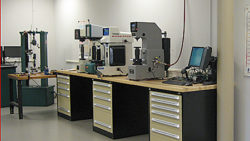 With the wide variety of materials and treatments available in the marketplace, testing can help narrow down the choices to the most appropriate selection for the intended use. As mentioned before, for many industry applications, testing is performed to certify material to a given standard or specification, or to verify that it meets other stringent criteria before it is put into use.
With the wide variety of materials and treatments available in the marketplace, testing can help narrow down the choices to the most appropriate selection for the intended use. As mentioned before, for many industry applications, testing is performed to certify material to a given standard or specification, or to verify that it meets other stringent criteria before it is put into use.
Not only is testing commonly relied on for material selection and choosing a reliable supplier, it is frequently used as a verification process to be sure that material received from a new supplier is what was ordered. Material Testing may include methods that yield information about the structure or mechanical properties of the material. It may also make sense to verify the composition or elemental content of the material with an instrumental or classical wet chemical analysis technique.
Product Design and Improvement
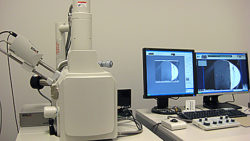 It’s typical for a business to purchase mechanical testing services when specifying material for a new product design. Testing may be performed to evaluate mechanical properties such as strength, hardness, elasticity and fracture toughness. Corrosion testing can determine if the material will hold up under given conditions such as humidity or a salt water environment.
It’s typical for a business to purchase mechanical testing services when specifying material for a new product design. Testing may be performed to evaluate mechanical properties such as strength, hardness, elasticity and fracture toughness. Corrosion testing can determine if the material will hold up under given conditions such as humidity or a salt water environment.
When an application requires more durable or more corrosion-resistant metals, this can often be attained with the addition of treatments. When appropriate, the material may be heat treated prior to testing to determine that the specified results have been achieved.
In further determining material characteristics, microanalysis, using microscopes and SEM equipment, can be used to analyze various surface features and to detect flaws and inconsistencies.
Production Processes
Testing is an essential part of both design and manufacturing processes, not only when safety is a concern, but also for any company committed to selling reliable products and minimizing damage and costs if problems do surface. Testing is often performed early on during product development to evaluate a planned production process. It can also be just as relevant to provide validation for final products on an ongoing basis. Various types of non-destructive testing services are used to evaluate finished products without causing damage to the items.
Materials testing also plays a large role in failure analysis investigations to help identify defective products, inadequate materials and, ultimately, the cause of a failure.
When materials testing services are purchased from an independent laboratory like Laboratory Testing Inc., a certified test report is provided that documents applicable accreditations, specifications/standards, other test criteria and complete test results.
Contact our team of account managers to discuss how materials testing can help ensure the success of your business.
Related Articles
Introduction to the ASTM E606 Standard
Low-Cycle Fatigue Testing and the Standards Set Forth by ASTM In the world of engineering, materials are often subjected to…
The Top 5 Consequences of Industrial Operations Not Calibrating Their Equipment
In the fast-paced world of industrial operations, precision is not just a goal—it’s a necessity. Calibration of equipment, a process…
The Benefits of Choosing a Calibration Company that Offers Instrument Replacement and Purchasing Services
In the demanding world of industrial manufacturing and quality assurance, selecting the right calibration partner can significantly impact your operational…
How Small a Defect Can UT Find
Customers often ask LTI how small a defect ultrasonic testing (UT) can find. This question is very difficult to answer…
Ethics in Laboratory Testing
What could be more important than ethics in the world of materials testing? Testing laboratories have an obligation to adhere…
Quality Considerations in Chemical Analysis
A Well-Planned and Managed Quality Control Program When you need chemical analysis services, you expect to receive accurate testing and…
